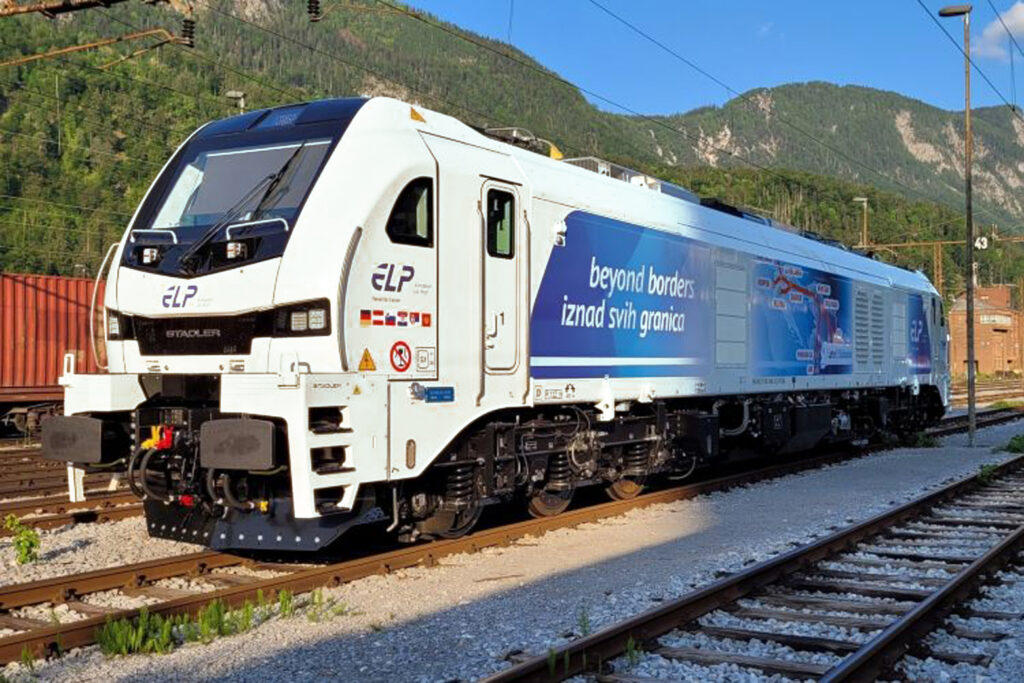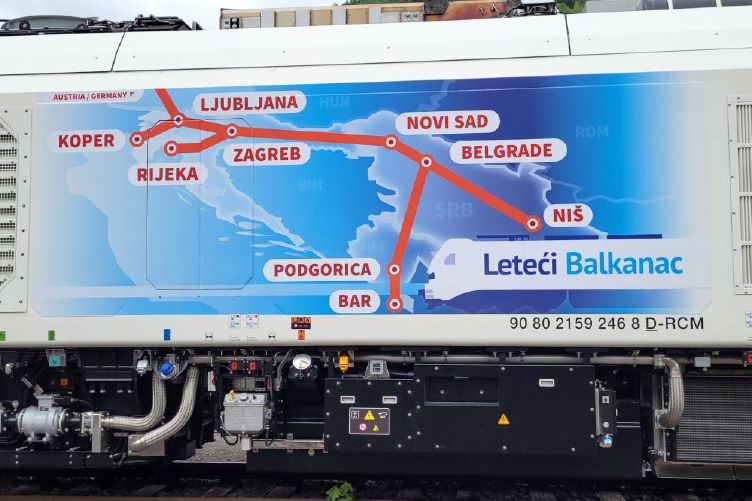News and Insights
Ľubomír Dlábik, ELP: Balkan is an ideal region for EuroDual locomotives
Interviewed by Lubomir Cech, Published on 06/06/2023 on railmarket.com

This week, European Loc Pool (ELP) is starting its tour to get the Stadler EuroDual locomotive approved in four Balkan countries. Railmarket News interviewed its Sales Account Manager, Ľubomír Dlábik, for more details.
RM: Why have you decided to go for the Balkan market with the approval of this locomotive type?
Ľubomír Dlábik: There were two primary drivers behind this decision. The Stadler EuroDual locomotive is already in use in Germany and Austria, which means it is equipped with the latest version of ETCS (L2 BL3.4.0) and PZB safety systems. The Balkan countries also use PZB, meaning we did not need to make any significant adjustments to the existing locomotives to obtain the approvals here. The second reason is that this is a terrain EuroDual was born for: it has steep gradients, sharp curves, and sections that are not electrified or have limited axle load. From the rail freight market point of view, we see Adriatic ports’ rise and potential to get more goods to the hinterland. This requires powerful locomotives capable of facing the challenging adhesion conditions, which will be needed. For example, it will be a big advantage that the EuroDual can haul heavy freight trains out of the port of Rijeka in one go, instead of the current splitting of trainsets in two parts and pulling them up the hill before returning for the second half of the cargo back to the port.
RM: Which countries are you aiming for now, and what is the further outlook for the future?
Ľubomír Dlábik: We currently have the prototype locomotive in Slovenia, where it will start its test runs this week. In Slovenia, it will only be in the diesel mode, as, unlike the rest of the countries, Slovenia runs on 3kV DC voltage. In the rest of the region, we will principally run on electricity and, if needed, on diesel. Tests will be performed in Slovenia and Croatia first. The locomotive will then move to Serbia and Montenegro before returning to the customer in Braunschweig, Germany, at the end of July. These will be the operational tests. After that, a thorough paperwork process follows, and we aim to get all countries approved for EuroDual operation before the end of this year.
If we look beyond into the future, we are looking at countries such as Bulgaria, Romania, North Macedonia, and Greece – to get EuroDual approved along the entire Rail Freight Corridor 10 (Alpine-Western Balkan rail freight corridor, editor’s note) and finally also establish a connection to Turkey.
RM: What are the challenges you see in the approval process, and can you foreshadow the potential customers of EuroDual in the Balkan?
Ľubomír Dlábik: The main challenge is, of course, the state of the infrastructure. The maximum allowed speeds are very limiting when you want to operate a state-of-the-art locomotive. But this is a corridor locomotive and many ongoing projects in this region are improving. This will allow for introducing of a new and innovative locomotive like the EuroDual, taking full advantage of all the unique benefits this new “next generation” locomotive offers.
As for customers, I cannot comment on specific names. We expect that the first customers will probably utilise the locomotive’s interoperability, connecting the ports of Koper, Rijeka and Bar with the hinterland. But we are, of course, also talking to domestic operators in each of these markets. The unique benefits of 6-axle hybrid locomotives allow them to think about whole new transport concepts, moving more freight from road to rail. And we, at ELP are very proud to contribute to that goal.

Ľubomír Dlábik is Sales Manager of European Loc Pool, currently focusing on the Balkan countries. He was always interested in this region and speaks fluent Croatian, Serbian, Russian and English. Before joining ELP, he was involved in EPH’s acquisition of the Slovenian rail freight carrier SŽ Tovorni promet. He had been in charge of CZ LOKO’s sale of locomotives to Slovenia, Serbia, Ukraine, Finland, and Estonia.
Schedule of the EuroDual locomotive tests in Balkan:
- 19 – 20 June 2023: Croatia
- 21 – 23 June 2023: Slovenia
- 03 – 07 July 2023: Serbia
- 10 – 18 July 2023: Montenegro
